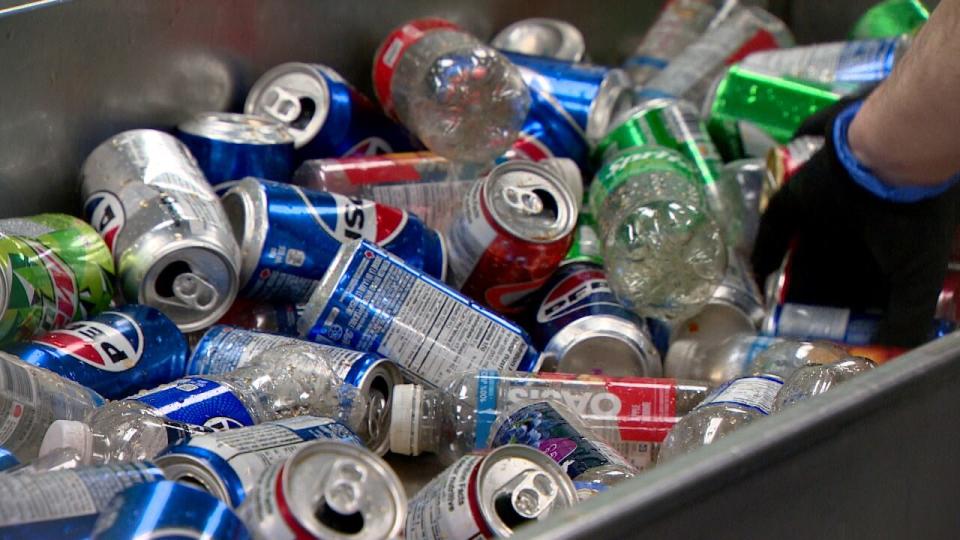Ontario rules out charging deposit on non-alcoholic cans, bottles
The Ford government will not bring in a deposit and return system on non-alcoholic drink containers such as pop cans and bottled water, CBC News has learned.
Ontario was considering such a system – similar to what the province has in place for beer cans and wine and liquor bottles – to try to boost the recycling rates of drink containers.
The system would have seen customers receive a refund for returning used beverage containers to promote recycling and reduce litter.
But a senior government official told CBC News on Thursday that's no longer under consideration because the cost would be too high.
Instead, the province will continue with the status quo of recycling bottles, cans and drink boxes through Ontario's blue box system, which is itself in the midst of a transition toward making producers cover the full cost of municipal recycling programs.

Environmental advocates have been calling for a deposit-return system for non-alcoholic beverages in Ontario because less than half of the containers sold in the province are recycled, the lowest rate in Canada.
The non-profit group Environmental Defence estimates that 1.7 billion plastic beverage containers end up in Ontario's landfills or incinerators every year.
Working group set up to explore system dissolved
Last year, Ontario's then-minister of environment David Piccini established a working group to explore options for implementation of a deposit and return system for non-alcoholic drinks.
The working group was to consist of representatives from government, environmental organizations, consumer advocacy groups, recycling industry experts and business leaders.
In a June 27, 2023 letter, Piccini said: "Such a system would enable consumers to receive a refund for returning used beverage containers, promoting recycling, reducing litter, and encouraging sustainable practices."
On Thursday, the senior government official said that working group has now been dissolved.
Krista Scaldwell, president of the Canadian Beverage Association, said in a statement Thursday that the decision to dissolve the working group is a "significant setback" for the environment and people of Ontario.
Scaldwell said the government has failed to deliver on its commitment to the environment.
"As one of only two provinces without a deposit-return system (DRS) and with the lowest recovery rate in Canada, this decision makes Ontario an outlier and leaves the province without a plan to increase beverage container recycling," Scaldwell said.
"Beverage producers were willing to fund an efficient and effective system to improve recycling rates. It is disheartening to delay the group's progress based on the interests of a few select stakeholders."
Scaldwell said the association and its members will continue to work toward a deposit and return system for all beverage containers to increase recycling rates in Ontario.
'Private greed over public good': advocacy group
Ashley Wallis, associate director of Environmental Defence, said in a statement on Thursday that the status quo is not good news for the environment.
"The announcement that Ontario is scrapping plans to launch a deposit return system for non-alcoholic beverage containers epitomizes a government prioritizing private greed over public good," Wallis said.

Wallis added that the government is "bowing to pressure" from retailers instead of "listening to the public and beverage companies."
Wallis said beverage companies proposed a pop can tax last spring to fund what she said would have been an "ineffective" recycling program. The province, however, opposed the scheme and instead set out to explore a deposit-return system, which she said would have been the best practice for beverage container recycling.
"But now it appears that the last 12 months have been a waste of time that delayed action and will result in billions of bottles and cans ending up in landfills or the environment," Wallis said.
"This is a common-sense solution to the problem of bottles and cans littered in parks, along roadways and in our lakes. Shame on the Ontario government for such a betrayal of the public interest," Wallis said.

 Yahoo News
Yahoo News 
